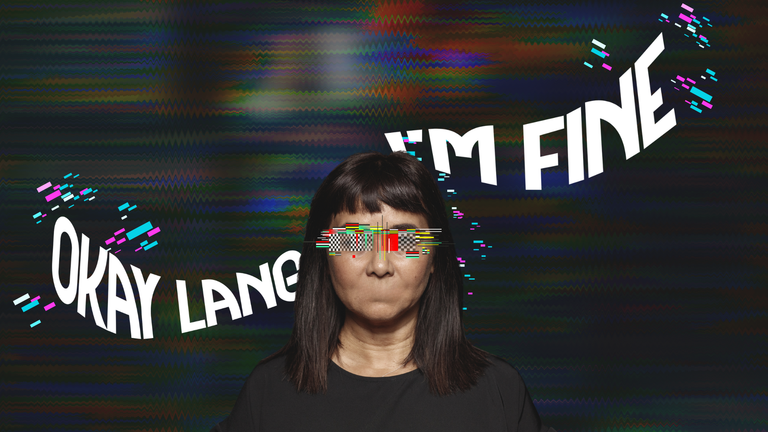“Bakit ang tahimik mo? Ayos ka lang ba?” – Why are you so unusually quiet? Are you alright?
I remember my friend asking me this question whenever I suddenly became quiet. It’s a simple question, innocent even, asked out of concern, but this question sometimes carries so much weight. It’s the type of question that will make you pause for a split second and take a short assessment of your feelings. In that moment, self-awareness heightens, and suddenly, you will start asking the same question repeatedly to yourself.
“Ayos nga lang ba talaga ako?” – Am I really okay?
Upon reflecting on our feelings, You still casually replied, “Okay lang,” – I’m okay.
Even though we are not sure if we really were.

It’s kind of funny to think how those two words become our automatic response like it is programmed to come out of our mouths. It’s simple, short, direct, and dismissive enough to end the conversation preventing follow-up questions. It’s a convenient answer that spares us from scrutinizing eyes and questions we are not yet ready to answer.
I cannot count how many times we’ve said it in our entire life. Probably a hundred? Thousands? Honestly, we’ve lost track. It came out as a habit, sometimes of fear. Fear that maybe it is not that relevant, fear of being misinterpreted, or worse misjudged. But mostly, it is about fear of letting someone else carry the weight of what we are feeling.
Don’t you wonder why it is so hard for us to admit that we’re not okay?
“Hindi ako okay ngayon at ito ang nararamdaman ko…” – I’m not okay, and this is what I am feeling…
It seemed easy.
We just need to find our voice and vocalize it.
But…
It isn’t easy and will never be.
I realized that maybe it’s the culture we grew up with, perhaps it’s the home that taught us to be who we are. The expectation is that we should always be strong, always in control of the situation, and always be “okay lang.”
The feeling of being seen as weak who cannot handle life challenges and manage emotions holds us back from saying the truth we have in our minds. We believe that admitting that we’re not okay will burden others and that we will just be an inconvenience. So instead of telling the truth, we say “Okay lang” as a form of shield to protect ourselves. But in reality, the shield we thought would protect us traps everything inside, and eventually the feelings we are trying to hide will be hard to contain.
And when that time comes, the shield and walls we built around us will eventually crack. The smile we’ve been showing off will fade and most likely we will find breathing hard to regulate.
That’s when we realize that true strength doesn’t lie behind the word “Okay lang” but is allowing ourselves to succumb and feel our emotions, being human and vulnerable. The strength will come from admitting to ourselves that we are not okay and let other people in. People who’s trying to reach out and knock that walls you built for yourself.
Saying “Okay lang” is like a temporary band-aid we put on an open wound but admitting that we’re not okay opens the door for growth and healing. It is the moment we choose to be real, with no facades, and live with honesty.
Not for others but for ourselves.
It is okay not to be okay. What’s not okay is not admitting that you're not.
This! That "Okay lang" is actually "I'm not okay and I am having a hard time." That "i'm happy" is actually "i'm tired and sad." But yeah, parang matatakot ka nalang talagang e share yong true feelings mo diba. Coz they know we are strong - but in reality we are not. And the more we contain it, mas dumudoble or triple pa nga ang bigat. Some coz if heaviness, mas naaapektuhan yong mind nila, depress, super down, some di na talaga kinakaya 😕😕
That's why let's appreciate those people who are reaching out to us, asking us on how we are, what happens to our day, and those people who can identify if something is off about us.
Maswerte ang mga taong may kayang pagsabihan ng mga problema at nararamdaman kumbaga they serve as an outlet of feelings. Some people kasi is wala and that is what is alarming, naiipon and hindi katagalan sasabog.